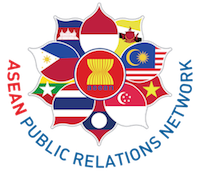By Ulla Fionna
President Jokowi’s first months have been dominated by important policies on lifting fuel subsidies, and choosing his cabinet as well as strategic appointments. Although the cabinet demonstrated a number of ‘compromise and reward’ appointments, its ministers are nevertheless under pressure to perform.
Jokowi’s weak position in the parliament has been improved by leadership crises in the opposition. The success in retaining direct local elections (pilkada) should also bring some confidence to the minority government.
His government has managed the first major disaster – the crash of AirAsia QZ 8501 – with great care and decisiveness. His fuel subsidy policies were unpopular amongst Indonesia’s poor but observers saw it as necessary for fiscal purposes. The subsequent drop in oil prices has helped him further in lifting the subsidies completely. However, it was his cabinet line-up as well as his choices for leaders in legal and judicial institutions which have invited criticism over his clean credentials.2
Jokowi’s popularity is at stake as he is now caught in the middle of a rift between his coalition members and the police on one side, against the anti-corruption agency KPK on the other.
*Ulla Fionna is ISEAS Fellow; e-mail: ufionna@iseas.edu.sg.





